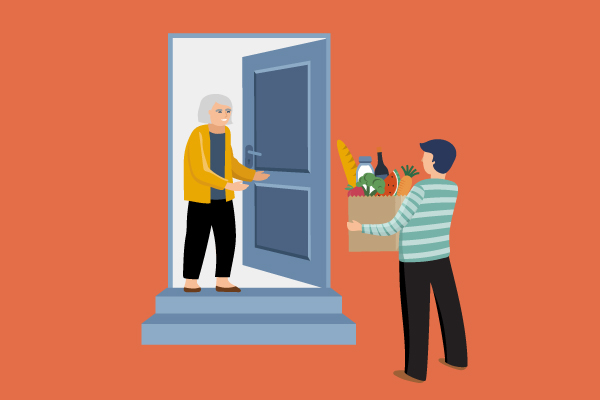Older Adults More Likely to Make the Effort to Help Others

Summary: Does getting older impact our willingness to offer a helping hand, or does being older simply mean we have more resources and therefore more capacity to offer help when needed? New research suggests that, all things being equal, older adults are more likely to offer help than younger adults.
Older adults are more willing than younger adults to offer a helping hand to others, according to new research published in the journal Psychological Science.
The study is the first to show how effortful prosocial behavior (behavior intended to benefit others) changes as people get older. The research focused on people’s willingness to exert physical effort rather than their willingness to give money or time, which is already known to increase with age.
“Past research had suggested that older adults were more prosocial than young adults because they donate more money to charity. But the amount of money people have changes as we get older, so older adults might just appear more prosocial,” said Matthew Apps, a researcher at the University of Birmingham and senior author on the paper. “We wanted to focus simply on people’s willingness to exert effort on behalf of someone else, as this shouldn’t depend on your wealth or the time you have available.”
According to Apps and his colleagues, older study participants were more likely to work harder for others even though they would gain no significant financial reward for themselves.
We show that there are positive benefits to getting older, too. In particular, older adults seem to be more willing to put in effort to help others.
Lockwood, University of Birmingham
In two experiments, the researchers tested a group of 95 adults aged 18 to 36 and a group of 92 adults aged 55 to 85. Each participant made 150 choices about whether to grip a handheld dynamometer—a device for measuring grip strength or force—with six different levels of how hard they had to grip. Before both experiments, the researchers measured each participant’s maximum grip strength to ensure the results were not biased by physical ability.
For each experiment, participants were told that they would be working to gain money either for themselves or for another person. They were first asked to decide whether they would be willing to put in effort to gain money or not. If they said yes, they had to grip hard enough to get the money.
The results showed that when the task was easy, younger and older adults were equally willing to work for others, but when the task was more effortful, older adults were more willing to work to help others. In contrast, younger adults were more selfish and much more likely to put in higher levels of effort to benefit themselves.
The team also noticed a correlation between willingness to put effort into tasks that benefited other people and positive feelings toward other people. But it was only in younger people that this “warm glow” feeling also related to them completing tasks for themselves.
“A lot of research has focused on the negative changes that happen as people get older,” said Patricia Lockwood, another researcher at the University of Birmingham and lead author on the paper. “We show that there are positive benefits to getting older, too. In particular, older adults seem to be more willing to put in effort to help others. These ‘prosocial behaviors’ are really important for social cohesion. Understanding how prosocial behavior changes as people get older is critical as we predict the impact of an aging society.”
The research was funded by the Biotechnology and Biological Sciences Research Council and the Medical Research Council, both part of UK Research and Innovation.
# # #
Lockwood, P., Abdurahman, A., Gabay, A., Drew, D., Tamm, M., Husain, M., & Apps., M. (2021). Aging increases prosocial motivation for effort. Psychological Science. Advance online publication. https://doi.org/10.1177/0956797620975781





APS regularly opens certain online articles for discussion on our website. Effective February 2021, you must be a logged-in APS member to post comments. By posting a comment, you agree to our Community Guidelines and the display of your profile information, including your name and affiliation. Any opinions, findings, conclusions, or recommendations present in article comments are those of the writers and do not necessarily reflect the views of APS or the article’s author. For more information, please see our Community Guidelines.
Please login with your APS account to comment.